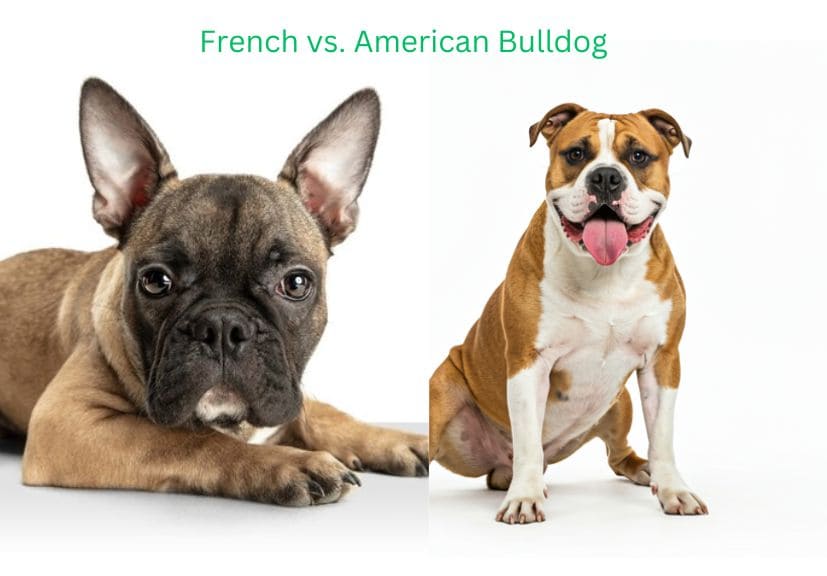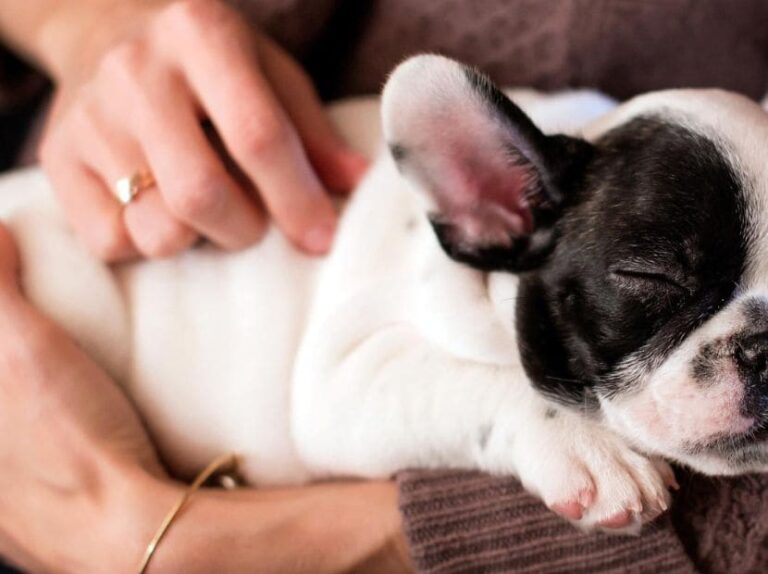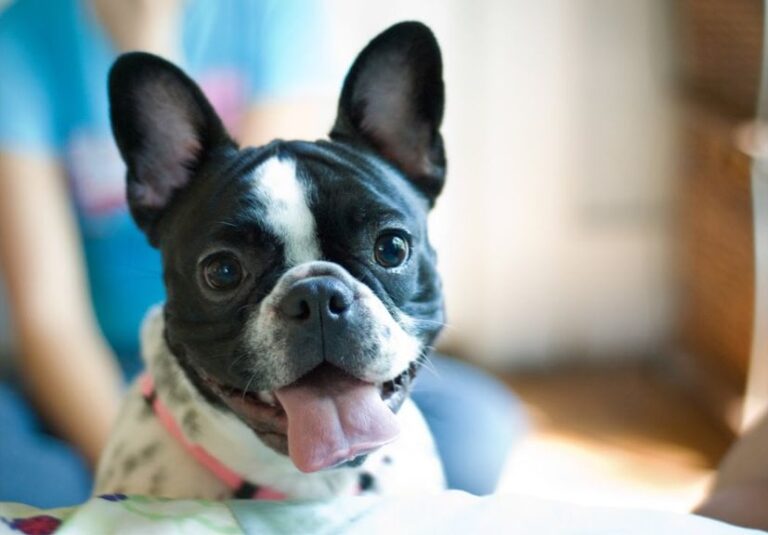History and Origin of the American Bulldog and French Bulldog!
The American Bulldog and French Bulldog boast fascinating histories, with one rooted in the hardworking farms of America and the other in the fashionable streets of England and France. Both breeds embody loyalty, adaptability, and a captivating charm, making them beloved companions worldwide.
American Bulldog
The American Bulldog has a rich history in the United States. Originally bred as a working farm dog, they were primarily used for hunting, herding, and guarding livestock. Descended from the English Bulldog, they were brought to America by immigrants in the 17th century. Over time, American Bulldogs developed into a breed known for their strength, loyalty, and determination. They were used to protect farms from wild animals and to help manage cattle, making them a versatile and hardworking breed.
French Bulldog
The French Bulldog originated in England as a smaller version of the English Bulldog. They were popular among lace workers in the 19th century who migrated to France during the Industrial Revolution, and the breed gained popularity in French society, particularly among the Parisian elite. Known for their distinctive bat-like ears and compact size, the French Bulldog was bred primarily for companionship. They have become one of the most popular companion dogs worldwide due to their charming personalities and adaptability to urban living.
Physical Characteristics
The American Bulldog and French Bulldog differ greatly in size and structure, yet both are known for their strength and charm. The American Bulldog is a large, muscular breed, perfect for active lifestyles and larger spaces. In contrast, the French Bulldog is compact and robust, ideal for apartment living. Despite their size difference, both breeds are loyal, and energetic, and require regular care to thrive.
American Bulldog
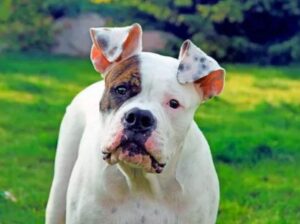
- Size: Large
- Weight: 60-100 pounds
- Height: 20-28 inches
- Build: Muscular, athletic, and strong
- Life Expectancy: 10 to 12 years
- Shed Level: Low
- Maintenance Level: Medium
The American Bulldog is a powerful, muscular dog with a sturdy build. They are much larger than their French counterparts, making them better suited for larger homes or outdoor spaces. Despite their size, they are known to be agile and quick, which is why they were historically used as working dogs on farms.
French Bulldog
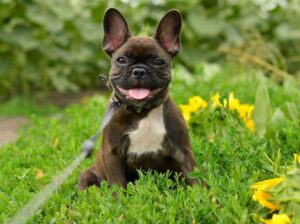
- Size: Small
- Weight: 16-28 pounds
- Height: 11-12 inches
- Build: Compact, muscular
- Life Expectancy: 10 to 12 years
- Shed Level: Medium
- Maintenance Level: Medium
The French Bulldog is small and stocky, with a distinctive flat face and large, bat-like ears. Despite their small stature, they are muscular and robust. Their compact size makes them perfect for apartment living or smaller homes, but they still require regular exercise to maintain a healthy weight.
American Bulldog vs. French Bulldog: Traits and Temperament
This comparison between the American Bulldog and the French Bulldog highlights key traits and temperament differences to help you choose the best breed for your lifestyle. From friendliness and exercise needs to health issues, barking tendencies, and their suitability for apartments or first-time pet parents, both breeds bring unique qualities. While the American Bulldog is more active and protective, the French Bulldog is a perfect companion for smaller spaces with moderate exercise and maintenance needs, making them ideal for novice owners.
Friendliness
- American Bulldog: Friendly, loyal, and affectionate. They form strong bonds with their families and are particularly protective of children.
- French Bulldog: Extremely friendly, sociable, and known for their loving nature. French Bulldogs love human companionship and are very affectionate with their families.
Exercise Needs
- American Bulldog: High exercise needs. This breed requires plenty of physical activity to stay healthy and happy. Regular walks, runs, and playtime are essential for keeping them fit.
- French Bulldog: Moderate exercise needs. A daily walk and some indoor playtime will suffice for French Bulldogs, as they are not as active as their American counterparts.
Health Issues
- American Bulldog: Prone to hip dysplasia, elbow dysplasia, and obesity. Regular vet checkups and a healthy diet are crucial for maintaining their health.
- French Bulldog: Prone to respiratory problems due to their brachycephalic (flat-faced) structure. Other health concerns include allergies, skin issues, and spinal disorders. They also struggle with extreme heat due to their short snouts.
Barking Tendencies
- American Bulldog: Moderate barking tendencies. They will bark to alert you to unfamiliar sounds or strangers but are not known to be excessive barkers.
- French Bulldog: Low barking tendencies. They are generally quiet dogs but may bark occasionally to get attention or express excitement.
Grooming Needs
- American Bulldog: Low grooming needs. Their short coat requires minimal maintenance. Regular brushing and occasional baths will keep their coat in good condition.
- French Bulldog: Moderate grooming needs. Their short coat is easy to maintain, but they may require more frequent cleaning due to their skin folds, which can trap dirt and moisture.
Shedding Level
- American Bulldog: Low shedding. They have a short coat that sheds minimally.
- French Bulldog: Low-medium shedding. They shed more than the American Bulldog, particularly in the spring and fall.
Training Needs
- American Bulldog: High training needs. They are intelligent but can be stubborn. Early and consistent training is important to ensure they grow into well-behaved dogs.
- French Bulldog: Moderate training needs. While they are intelligent and eager to please, they can be stubborn at times. Positive reinforcement methods work best with this breed.
Good With Kids
- American Bulldog: Very good with kids. They are gentle, protective, and patient, making them ideal family pets.
- French Bulldog: Good with kids. They are playful, affectionate, and enjoy being around children, though supervision is recommended with younger kids due to their small size.
Good With Cats
- American Bulldog: Depends on socialization. With proper training and early socialization, they can coexist peacefully with cats, though they may have a prey drive.
- French Bulldog: Generally good with cats. French Bulldogs are typically friendly and can get along with other pets, including cats if properly introduced.
Good As a Service Dog
- American Bulldog: Can be trained as a service dog, especially for physical tasks due to their size and strength.
- French Bulldog: Not typically suited as a service dog, but they can excel as emotional support animals due to their affectionate and calming nature.
Good For Apartments & Small Homes
- American Bulldog: Not ideal for apartments due to their large size and high exercise needs. They do better in homes with a yard.
- French Bulldog: Perfect for apartments and small homes. Their small size and moderate exercise needs make them well-suited for urban living.
Biting Tendencies
- American Bulldog: Low biting tendencies when properly trained. Like any dog, they need to be socialized from a young age.
- French Bulldog: Low biting tendencies. French Bulldogs are generally gentle, but puppies may nip while playing.
Energy Level
- American Bulldog: High energy level. They need regular physical activity and mental stimulation.
- French Bulldog: Moderate energy level. They enjoy short bursts of activity but are also content to lounge around for much of the day.
Good With Other Dogs
- American Bulldog: Can be territorial, so early socialization is key to ensuring they get along well with other dogs.
- French Bulldog: Generally good with other dogs. They are sociable and tend to get along well with other pets if introduced properly.
Playfulness
- American Bulldog: Very playful. They love to play and are especially fond of games like fetch.
- French Bulldog: Playful but in shorter bursts. They enjoy playing with their family but are not as high-energy as American Bulldogs.
Sensitive to Cold Weather
- American Bulldog: Not very sensitive to cold weather. Their short coat provides some protection, but they may need a sweater in extremely cold temperatures.
- French Bulldog: Sensitive to cold weather. Due to their short coat and small size, French Bulldogs are more susceptible to cold temperatures and may need extra warmth in chilly climates.
Sensitive to Warm Weather
- American Bulldog: Moderately sensitive to warm weather. They can handle heat better than French Bulldogs but still need to be monitored in extreme temperatures.
- French Bulldog: Highly sensitive to warm weather. Their flat faces make it difficult for them to regulate their body temperature, so they must be kept cool during hot weather to prevent overheating.
Good For First Time Pet Parents
- American Bulldog: Not ideal for first-time pet parents. Their size, strength, and need for consistent training make them better suited for experienced dog owners.
- French Bulldog: Great for first-time pet parents. They are easygoing, low-maintenance, and relatively easy to train, making them a great choice for novice dog owners.
Which Breed is the Best for You?
Both the American Bulldog and French Bulldog have their unique strengths and weaknesses. The American Bulldog is best suited for experienced dog owners who can provide consistent training and a physically active lifestyle. They are loyal, strong, and great protectors, but their large size and energy level make them better suited for homes with outdoor space.
On the other hand, the French Bulldog is ideal for those who live in apartments or smaller homes and prefer a more laid-back companion. They are affectionate, adaptable, and relatively low-maintenance, making them perfect for first-time dog owners or people with less active lifestyles.
Ultimately, the best breed for you will depend on your living situation, lifestyle, and how much time you can dedicate to your dog’s training and exercise. Whether you prefer the robust and loyal American Bulldog or the charming and compact French Bulldog, both breeds make wonderful companions when placed in the right environment.
Conclusion: American Bulldog vs. French Bulldog?
When deciding between the American vs. the French Bulldog, the best choice ultimately depends on your lifestyle, living environment, and personal preferences. If you’re looking for a loyal, protective, and active companion, the American Bulldog may be the ideal choice, especially if you have a larger home with outdoor space. They thrive with experienced owners who can provide regular training and meet their high exercise needs.
On the other hand, if you live in an apartment or a smaller home, the French Bulldog is a perfect fit. Their low-maintenance grooming, moderate exercise needs, and friendly, affectionate nature make them an excellent choice for city dwellers or first-time pet parents. While they are playful and love human companionship, they require extra care in extreme temperatures due to their sensitivity to cold and warm weather.
FAQs
What is the average cost of an American Bulldog versus a French Bulldog?
The price can vary widely based on breeder reputation and location, but American Bulldogs typically range from $800 to $1,500, while French Bulldogs can cost between $1,500 and $8,000, due to their popularity and breeding challenges.
Do American Bulldogs and French Bulldogs have different dietary needs?
Yes, American Bulldogs may require a diet higher in protein to support their muscle mass and energy levels, while French Bulldogs, being smaller and less active, benefit from a balanced diet that prevents obesity and supports their sensitive digestive systems.
What kind of training techniques work best for each breed?
American Bulldogs benefit from firm, consistent training with clear boundaries and positive reinforcement due to their intelligence and potential stubbornness. French Bulldogs respond well to positive reinforcement techniques, like treats and praise, as they are eager to please.
What are common misconceptions about American and French Bulldogs?
A common misconception about American Bulldogs is that they are aggressive, and with proper training and socialization, they are loyal and friendly. For French Bulldogs, some people believe they don’t need exercise, but they still require regular activity to stay healthy.
How do these breeds handle travel?
American Bulldogs are generally good travel companions, provided they have enough space in the vehicle. French Bulldogs can be more challenging due to their brachycephalic nature; they may need to be monitored closely during travel, especially in hot weather.

